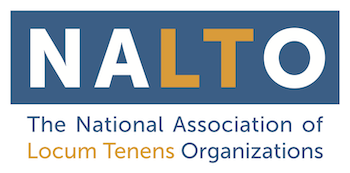As we pass the midway point of 2017, the demand for locum tenens staffing continues to trend upward.
The need for locum tenens remains driven in part by the shortage of full-time providers. Meanwhile, our industry is also experiencing an influx of new in-house recruiters constantly challenged with maximizing their facility’s revenue stream by adjusting to a mix of permanent and contract providers.
The medical industry’s evolving labor landscape continues to ebb and flow. As healthcare administrators encounter the difficulties in scheduling qualified staff to meet the need for care, the following feedback from facility administrators is now available per the most recent survey data from a major healthcare staffing organization:
94% of healthcare facility managers surveyed reported using locum tenens physicians sometime during the last 12 months. This is up from 91% in 2014, versus 2013, and from 74% in the year 2012.
Locum tenens providers are still needed most in the following specialties:
- Family Practice
- Internal Medicine
- General Surgery
- Psychiatry
- Radiology
- Anesthesiology
- CRNA’s
- Nurse Practitioner
- Physician Assistant
The majority of the aforementioned specialties stay atop this year’s list, due to the fact that a full-time doctor in primary care makes a fraction of their more specialized peers. The U.S. healthcare system continues to need locums most at the intersection of medicine’s first responders and the underserved population within our country.
- Primary Care Private Practices
- Urgent (or Acute) Care Clinics
- Behavioral Health (Government & correctional facilities, outpatient centers, rehabilitation clinics & other mental health facilities)
- Rural Regional Facilities
Because it takes an average of six to nine months for medical graduates who complete their residency to find permanent jobs, an increasing number of new doctors are choosing locum tenens to immediately begin paying off medical school debt. Older providers nearing retirement continue to choose locum tenens because it offers a more flexible schedule in a variety of settings. In addition, there’s more freedom to travel for locum tenens practitioners than ever before, thanks to the recent implementation of the Interstate Medical Licensure Compact.
Providers interested in exploring the work/life balance that locum tenens can provide should contact a NALTO member firm today to speak with a recruiting consultant about ongoing opportunities that best match their practice interests.
